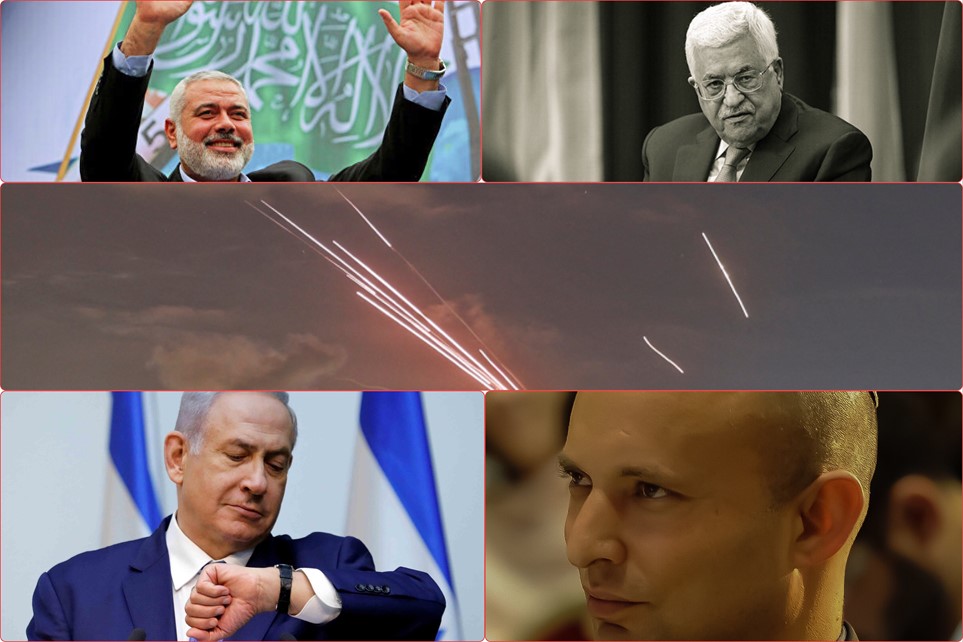In the early hours of 21 May, a ceasefire was reached between the Israeli government and Ḥamās, practically involving all Palestinian resistance factions. Thus the newest Gaza war has ended, which claimed the lives of 12 Israelis and at least 243 Palestinians.
As calm somewhat returned to the area and joyous celebrations filled the streets in Gaza and the West Bank both sides claimed victories. And beyond the immense destruction and confusion for more than two weeks, both sides have some reason to claim victory. Tel Aviv managed to rally massive political support, killed several field commanders of Ḥamās, the Islamic Jihad, and other factions, and even more, learned the true capabilities of their Palestinian foes. Making them able to better prepare for the next fight. The Palestinian side managed to surprise their Israeli foes and inflicted heavy material damage. They also rallied serious, though mostly Arab and Muslim support, humiliated the Israeli air defense, and the most important of all, through the mediators gained guarantees for their initial demands. The residents of the aš-Šayh Ğarrāḥ neighborhood in Jerusalem escaped eviction, at least for now, and the al-Aqṣā Mosque was promised to be left unharmed and barred from Jewish radicals to cause conflicts.
Truly, despite the losses, both sides had reasons to be happy with the results. Yet the real victors were exactly those leaders, who a week ago we suggested to be running a dangerous gamble for their own political agendas. These are Netanyahu, who got one major step closer to remain Prime Minister, and Ismā‘īl Haniyya, who also came closer to become Palestinian President.
A very Satanic exchange indeed, laying the foundations for the next horrific seasonal conflict. But what are the real benefits and losses?
Bibi on the rise again
As we suggested last week, Netanyahu had much to gain from this suspiciously convenient war. The very fact that guarantees were given about the aš-Šayh Ğarrāḥ neighborhood and the al-Aqṣā proves that this war could have been prevented, given Tel Aviv really wanted to. Despite the humiliation of the Iron Dome, the lack of a land operation into Gaza, and the fact that at the end Ḥamās and its allies were not broken Netanyahu gained a lot from this conflict. Little more than a week is left for the “change coalition” to form a government without Netanyahu, their time ends of 2 June. Before the war, the backbones of this alternative block were the Left, the “liberals” led by Yair Lapid – coming out second in the last elections -, the Palestinian United List, and some radical right-wing elements, like Naftali Bennett’s Yamina Party. Bennett was particularly important, as he could rally support from the growing right-wing sentiments and was seen before the war as the possible next Prime Minister.
As a result of the war, the Palestinian Knesset members cannot possibly join any Israeli government. Netanyahu could not count on them anyway, but at least not they will not join the rivals. But more importantly, the biggest tactical loser was Naftali Bennett. His Yamina Party already indicated joining a power-sharing mechanism. Just like Benny Gantz did not long ago, completely crushing his party. Some left-wing parties are also having second thoughts now. Bennett heavily criticized the current government, but right-wing fervor ran high now. If he wishes to keep the support of the right-wing voters, who now flock to the banner of Netanyahu proving himself a firm military commander, Bennett has to back up the recent war efforts.
The war itself resurfaced all the inner contradictions of the “change coalition” making it fall apart. This will very possibly leave Netanyahu in office until another election is held, in which he has against better odds. In the last elections he already neutralized the biggest threat, the former Chief of Staff Benny Gantz led Blue White Coalition. Now he isolated the Palestinian representatives, whom his rivals won’t be able to use. And by rallying rightist voters, he can steal voters from radicals, like the Yamina, but even some liberals. The worst he can anticipate is yet another inconclusive election, after which he can wait for even a sixth consecutive early election. But by then he will capitalize on his “victory” over the Corona pandemic, the large international support he rallied, and humiliate any right-wing opposition making them look weak.
The little concessions he gave, and those are temporal anyway, are incomparable to the political gains he took by the war. The otherwise humiliating fiascos he suffered, as Palestinians managed to hit back severely can even be turned to his benefit, as fervor will cloud the clear judgment of the situation.
And even the concessions are beneficial for him. He assessed the almost magic capabilities of these small matters for him to launch a new Gaza war and stir up tension whenever it is convenient for him. Because of the magnitude of the al-Aqṣā, he cannot dream about anything more, but he would unlikely to give up this winning card. Because of the sensitivities surrounding the mosque, he can provoke yet another war, any time he wishes.
Paving the way for the new Palestinian President
In a much more striking way Ḥamās, its allies, and particularly Haniyya himself showed political and military prowess. After 16 years of the infighting and the decaying power of Maḥmūd ‘Abbās it was shown that with planning, good regional support, and being resolute the Palestinian resistance can indeed show power and force the Israelis into concessions. At least that is the picture in the streets. All over Gaza and the West Bank residents were celebrating the end of the war, but even more the results. Yet no one chanted the name of ‘Abbās, or the leading members of Fataḥ, which already paves the way for success in the upcoming Palestinian elections. Which cannot be held off for much longer. While Ḥamās and the factions alike were fighting and scoring impressive success, ‘Abbās practically has nothing to show for. Not on the ground, nor internationally, as almost no one was negotiating with him. His political grave is ready.
Indeed the Palestinians, especially in Gaza, had horrific losses. But the Satanic fact is that the human losses – with Palestinian standards – don’t even count as extremely high. In 2008-09 Gaza lost 1166 people in a three weeks long war, while in 2014 the same loss was between 2125 and 2310 people in a 7 weeks long war. Though in 2014 Ḥamās inflicted a bigger loss – 67 soldiers and 6 civilians – upon the Israelis that was the result of an Israeli ground assault on Gaza. Which was surely anticipated this time as well, but did not happen. Back in 2014, it was claimed not only by Tel Aviv but also by ‘Abbās that Ḥamās was severely weakened incapable to fight another war. Yet now Haniyya can claim that they even improved. The Israelis did not even dare – or they simply had no intention – to enter Gaza, while sensitive targets were successfully hit. The war was shorter and with smaller losses than before. At the same time ‘Abbās had nothing to show for. As for the material loss that is significant, but soon international and especially Arab aid will be rallied and much of the infrastructure – to a miserably minimum level – shall be soon restored.
It is true that some field commanders of the Palestinians got killed in the war. Yet this is more of a loss for the Palestinians, but again for the old Ḥamās leadership. This is because this new generation of young military strongmen is the best possible rivals for Haniyya and Miš‘āl, So their death is a double political gain. Rivals are eliminated, but celebrated, building the status of the party leaders.
What really counts is the political gains on the streets and around the region. The youth now saw that there can be successful ways of hitting back and support shifted for the radicals. On the other hand, all regional forces having an interest in supporting Palestinian forces to keep Tel Aviv busy will have little interest in supporting ‘Abbās, but much more prospect in Ḥamās once again. So whatever conflicts they had in recent years with Syria, Iran, the Gulf, or even Turkey at one point that all is stepped over. The Ḥamās old guard is “back in business”.
Especially because they managed to do something that rarely any Palestinian leaders have managed to do. They promised certain things to be reached, and they ended the war by securing those gains. They kept their word, and the appearance is that they forced Tel Aviv into concessions.
The war of lost opportunities
On both sides, but especially on the Palestinians, this war showed an extreme amount of lost opportunities.
For the Israelis the biggest loss of the change to break out of the hopeless political deadlock. Not only Netanyahu was not toppled, he is stronger than ever both internally and internationally. This war also witnessed an extreme wave of violence on small-scale street fights. This shows that the chance of a viable “one-state” model and Israeli-Palestinian merge is getting farther away. Politics are heading to even bigger polarization.
The losses on the Palestinian fold, however, are much bigger. It is very clear from the results that Ḥamās was building an impressive arsenal of missiles and stockpiled many aces up in their sleeves. They clearly managed to surprise the Israeli leadership, and part of this arsenal obviously came from abroad. Yet had they kept these capabilities hidden more their chance for political pressure would have been bigger, and in case of a major regional war – for which there is always a very clear chance – their impact would have been much bigger. Now Tel Aviv knows relatively accurately what to expect from Gaza, and a part of this arsenal even became depleted. The element of surprise was blown for gains relatively insignificant and very temporal.
What this generation of Palestinian leaders failed to understand is that even though they are vital for any regional calculations, with such behavior the trust in them is getting smaller. Because clearly they took the bait of political provocations and missed chances.
The biggest loss for the Palestinians was, however, that they secured Netanyahu’s positions. Had a new government came to power in Tel Aviv after 13 years, surely a period of internal disputes would have followed. That is because the “change coalition” is in fact a very loose net of completely different political forces. It is one thing to agree on one political step, but running the state is something completely different. With some Palestinians even being in the government would have been a factor for softer policies, and much less erratic by Tel Aviv toward the Arabs.
Interdependencies
It is extremely ironic that the forces most laud to claim victory now, are the ones which can thank the most for each other. Ironic, because they build their success on the alleged victory over the other. The Ḥamās need an Israeli leadership, like that of Netanyahu. Which is erratic in times and aggressive in others, which can be shown – not unfoundedly – as extreme and vicious, but at the end can cut good political deals.
Yet Netanyahu also needs this sort of Palestinian leader. Squalling amongst themselves. Rush in judgment. Ready to go to war after any provocations, whenever political rational needs it. And largely run by an organization deemed a terrorist in many parts of the world, always securing international support.
This controversial interdependence paved the way for a series of new, even deadlier wars. Whenever they are needed.
Both parties have rightful reasons to celebrate, though the people they represent much less. But there is a foul, Satanic, sulphur scent, not that of the bombs, which overwhelm the results of this brief, but bloody war of May 2021


